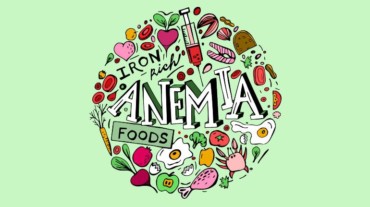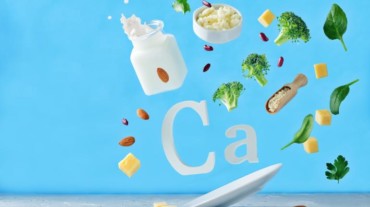Chat with ![]()

Chat with ![]()


We always complain about how periods aren’t easy on us. But we never realize that the problem lies within us, and rather than simply blaming our menstrual cycle, we should actually do something about it.
Nope, we are not recommending any medical solution, but we just want to drive your attention towards some holistic ways to deal with PMS. Do you know, the right choice of foods can help you reduce PMS symptoms? They do not just help you to stay relaxed, but also uplift your mood in so many ways!
The reason is because of the nutrients present in them. According to Ms Priya Palan, dietitian at Zen Multispeciality Hospital, Mumai, the food we eat and the menstrual cycle have a corresponding relationship.
“The symptoms that many women experience during their menstrual cycles can be dealt with the consumption of micronutrients in the diet. Micronutrients i.e. vitamins and minerals help in regulating the body’s metabolism at cellular levels. Thus, including them in the diet helps to relieve symptoms,” she explains.
Women with menorrhagia (heavy bleeding) are likely to have low levels of iron. Studies suggest that iron supplementation not only helps to cope with anaemia but also increases the concentration of haemoglobin and reduces fatigue. Eat foods rich in iron that include spinach, amaranth leaves, beans, red meat, sprouts, and til seeds. One must add a source of vitamin C i.e. lime, amla, citrus fruits to enhance the iron absorption.

It helps to relax the smooth muscles of the uterus and reduce dysmenorrhea (menstrual cramp). It causes a calming effect and reduces the stress. Green leafy vegetables, nuts, pumpkin seeds, flax seeds nuts and chocolates can be added to the diet.
Zinc is used as a co-factor for estrogen and progesterone receptors. Zinc helps in relieving pain and menstrual cramps. Eggs, cereals, legumes, beans, as well as pumpkin seeds are good sources of zinc.
Calcium has a functional role in relief of symptoms associated with menstrual distress. The nutrient helps to reduce behavioural changes and relieves water retention during the premenstrual phase. Almond, yogurt, ragi, channa, paneer, drumstick, and seeds are good sources of calcium.

Calcium homeostasis is affected by vitamin D. Supplementation of vitamin D helps to significantly decrease the intensity of pain. Fortified foods such as cereals, juices can be added to the diet.

B6 helps to make new red blood cells, carry oxygen and deal with mood swings. Eat foods like eggs, chickpeas, avocados, nuts and seeds.
This nutrient can help to overcome anaemia and regulate the menstrual cycle. Leafy vegetables, avocado, beans, celery, asparagus, brussel sprouts are good sources of folic acid.
The anti-inflammatory omega-3 fatty acid foods help to counteract the headaches and cramps caused by an inflammatory chemical in the body, called prostaglandin. Fish, walnuts, flaxseeds and soya are good sources of omega – 3 fatty acids.

It has an antioxidant property, which helps to reduce peroxidation and relieve the severity of dysmenorrhea. It helps in balancing the hormones and reducing anxiety. Nuts and seeds are good sources of vitamin E.
It helps to reduce the estrogen levels that significantly help to reduce the menstrual cramps. Vegetables, fruits, sprouts, whole grains, oats are good sources of fibre.
Thus, adding wholesome foods rich in micronutrients and avoiding processed foods can help to deal with symptoms during menstruation. So, go for them all!